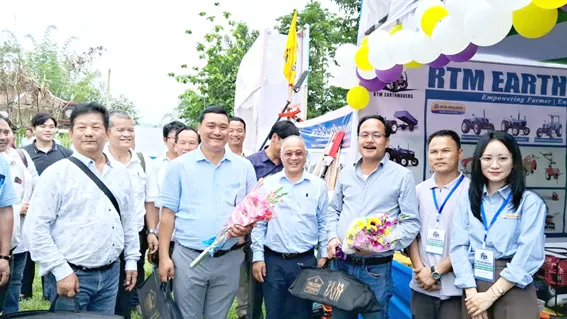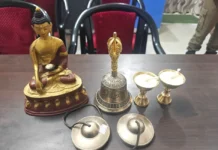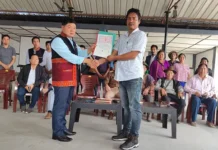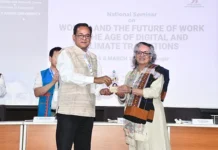DOIMUKH, 2 Jun: Kanubari MLA and adviser to agriculture minister, Gabriel D Wangsu called for preserving the local germplasm, terming it “a unique selling proposition of our products that could fetch remunerative prices.”
Addressing farmers, scientists and officers of the agriculture department during a state-level ‘kisan mela-cum-farmer-scientist interface’ programme at the Rono ground here on Friday, Wangsu encouraged the youths to take up farming seriously.
“With right technology interventions and assistance from the department, farming can be a lucrative and sustainable business,” he said, and urged the farmers to be “aware of the schemes initiated by the government.”
He stressed on “dedicated efforts from the department officers to create maximum awareness on state and centrally-sponsored schemes, and also to select genuine farmers and not succumb to political or bureaucratic pressures.”
Wangsu further suggested conducting a brainstorming session on basic requirements like storage, packaging and processing of the products of the small growers, specifically the local vegetable vendors.
Papum Pare DC Cheechung Chukhu emphasised on “strengthening the market linkages for the farmers,” and advocated promoting Papum Pare as an agriculture hub, “since the district is connected to the rest of the country through rail, road and air.”
Agriculture Director Anong Lego encouraged the farmers and the youths to “avail the opportunity of the mela to get firsthand information about the schemes and discuss issues pertaining to marketing and labour shortages.”
Yupia ADO Kekjar Ronya apprised the participants of the state and the central government schemes and their components.
The programme, organised by the Papum Pare district agriculture office, also included display of farming machineries and equipment.
Farmers and SHG members from Tawang, East Kameng, West Kameng, Lower Subansiri, Papum Pare, and Pakke-Kessang benefitted from the programme.
DAO Maze Piel, Deputy Director Dani Yube, and officers from the agriculture and horticulture departments also attended the programme. (DIPRO)





